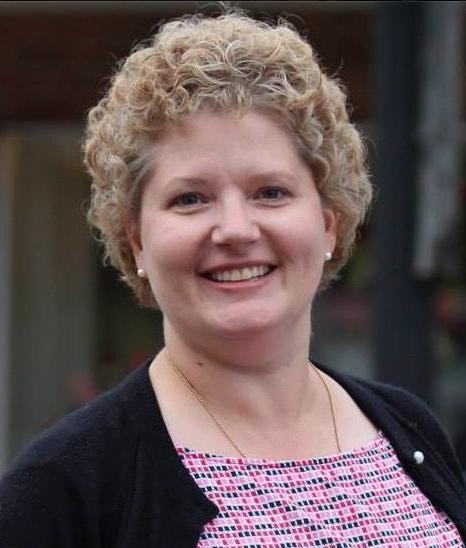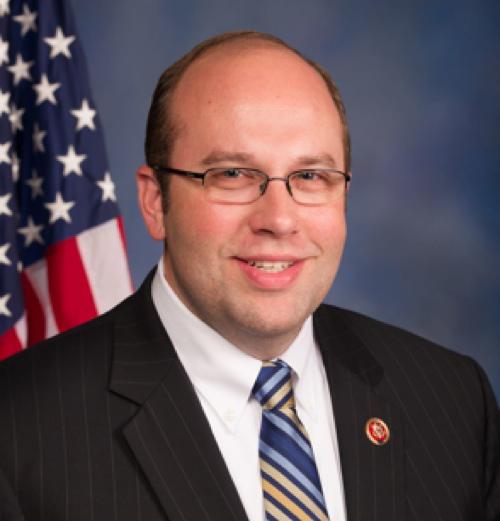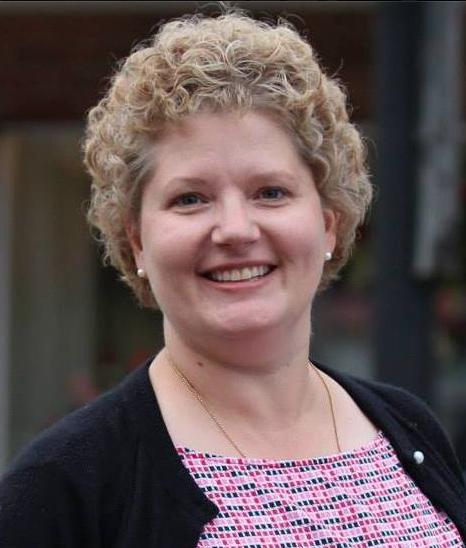
151st District, Missouri - Let it Not snow! Let it Not snow! Let it Not snow! Winter is going out roaring like a Lion but thankfully the forecast is warming up! We are also warming up and moving a lot of legislation for the State of Missouri. Committee work is in full swing. We are hearing several bills on the House floor and sending some over to the Senate. Next week will be budget bills. I expect floor debate will be lively. My first bill HB 705 will be heard this next week in Committee on Health and Mental Health Policy. It deals with MO HealthNet managed care organizations; to allow eligible recipients to combine all available healthy behavior incentives toward the purchase of certain categories of infant and childcare items such as car seats and other safety items.
Twice this week, our session schedule was changed. Monday, many legislators and I went to Fort Leonard Wood, to show support for the base as the Army had officials at a hearing post on the future of the fort. Missouri had a huge presence in elected officials, Governor Nixon, Senators Claire McCaskill, Roy Blunt, Congresswoman Vicki Hartzler, and almost 80 of my colleagues in the Missouri House and Senate were in attendance. I will add that when the community made its case to keep the fort they talked about things to do in Missouri and how the base is capable of expanding to meet whatever need the military may have. Every community in Missouri will be effected if we lose Fort Leonard Wood. We must support a strong military and keep our training facilities in place. We must send a strong message to Washington!
I’m proud of my colleagues for taking a stand in support of the men and women of our Armed Forces. Right now, Fort Leonard Wood is facing the threat of losing 5,400 jobs at the base. The proposed cuts are part of the federal government’s efforts to cut the military workforce by 14 percent. While we understand the need for the budget reductions, we also know such a drastic cut to the workforce would be extremely harmful to the communities around Fort Leonard Wood, and to our state’s economy. In the weeks and months to come I know we will continue to see the state’s leaders work together to do all we can to save these jobs. The thousands of folks who turned out for the listening post this week are testimony to the importance of the base to the surrounding communities and our state. My hope is that we can save these jobs and prevent the devastating impact the cuts would have on Missouri families.
On Tuesday, Auditor Tom Schweich was laid to rest. From our Speaker of the House, John Diehl came these words, “It was with immense sadness that I learned of the tragic passing of our fellow public servant, Tom Schweich. This is a devastating loss for our state as we have now lost a leader and a man of the highest integrity, character and dedication.” I would ask all Missourians to pray for the Schweich family as they cope with this terrible outcome.
Even though many things in life happen that we do not understand we must be moved by our willingness to overcome all obstacles. No matter what you are going through you can overcome! I will do everything I can to stand for our great District 151 and unite us with our fellow Districts and continue to push forward this Session what is good for our community. We have a very busy week ahead!
Until next week,
Tila
Capitol News:
Medical Malpractice Reform Bill Receives House Approval (HB 118) - The House moved this week to approve a plan designed to contain ever-escalating medical costs and to keep medical professionals from fleeing our state. The legislation would limit the amount an individual can receive for noneconomic damages in a medical malpractice lawsuit. In effect, it would reinstate the limits that were put in place in 2005 that were then struck down in 2012 by the Missouri Supreme Court, which ruled that a cap on noneconomic damages violates the constitutional right to a jury trial.
Supporters say putting the caps back in place is a necessary step to limit the cost of medical malpractice insurance for physicians. They say keeping costs down is vital to efforts to prevent doctors from leaving Missouri for other states with reasonable limits in place. They also point to the fact the bill would limit only noneconomic damages such as pain and suffering, and not the amount an individual can receive for medical costs or lost wages. The bill approved this week would put in place a $350,000 limit on noneconomic damages in medical malpractice cases. This is the same limit that existed under the law that was put into place in 2005. Before that change, Missouri had a cap of $579,000 for noneconomic damages.
House Approves Tax Amnesty Legislation (HB 384)
This week the House passed legislation that could generate as much as an additional $75 million in revenue for the state budget. These are additional funds that can help to fund vital programs and services that otherwise could be looked at for cuts.
The additional dollars would be generated by a period of tax amnesty that will allow delinquent taxpayers to forego all penalties, additions to tax, and interest on their unpaid taxes if they pay in full. The state has previously authorized tax amnesty periods that brought in approximately $74 million for fiscal year 2002 and $42 million for fiscal year 2003. It’s important to note that anyone who makes use of the forgiveness procedures must agree to comply with tax laws and cannot use the same amnesty procedure again in future years.
Reducing the Bureaucratic Red Tape for Missouri Businesses (HB 513)
The House also passed legislation this week to make Missouri friendlier to businesses of all sizes. The legislation would reduce the filing fees for businesses throughout Missouri, and make Missouri the state with the lowest business fees in the nation.
Right now, filing fees can vary based on the type of business entity and the type of work being performed. The bill we approved reduces all of the fees and makes them streamlined to $5 on business filings. These dollars go to the technology trust fund that pays for our state’s new online filing system.
One thing we know from talking to businesses all around the state is that they find all of the bureaucratic red tape to be confusing and a substantial obstacle. By cutting some of this tape we can get government even more out of the way so that businesses can freely grow and prosper.
Protecting Missouri’s Health Care Workforce (HB 112) - Another piece of legislation passed this week would give Missouri the accurate data it needs to allocate resources and make decisions that will ensure we have a strong health care workforce in the future. While it is a surprise to some, the truth is that Missouri does not have reliable information that will allow us to have relevant discussions about how to grow and retain our workforce of health care professionals.
Missouri is blessed to have six medical schools in our state and we produce a large number of doctors, but from what we know it appears we have not done a good job of keeping many of them in the state. The bill we passed this week will allow our state boards that deal with our medical professions to work together to better collect the data they need. We know that better information will allow the state to make better decisions that address the actual needs of Missourians and the health care professionals who treat them.
Honoring a Great Public Servant (HR 659) - Also this week many of my colleagues made the trip from Jefferson City to Clayton to pay their respects to State Auditor Tom Schweich, who tragically passed away last week. It was a somber and emotional moment as we remembered this man who had worked so hard for our state, and who had such a bright future of service ahead of him. Upon returning to the Capitol, the House met to approve a resolution honoring and memorializing Schweich. As the resolution said, “Schweich’s professionalism, passion for civil service, and relentless defense against corruption, waste, and abuse serve as a standard for us all.” I know I speak for all of my colleagues in the legislature when I say Schweich was a great public servant who will be dearly missed by both Republicans and Democrats.
Sales Tax Exemption on Manufactured Homes (HB 111) - Bill excludes used manufactured homes from sales and use taxes—which protects young families, seniors, and individuals with low incomes from the burden of sales taxes. Third read and passed by a bipartisan majority (132-17).
Missouri Health Care Workforce Data (HB 112) - Authorizes the boards responsible for monitoring / licensing health care providers to enter into agreements with DHSS, a public institution of higher education, or a nonprofit entity to collect and analyze health care workforce data. Creating this kind of data set will allow the state to better allocate resources for training, education, and investing in growing our health care workforce. Third read and passed by a bipartisan majority (142-10)
Audits on Transportation Development Districts (HB777) - Requires the State Auditor to report to DOR any Transportation Development District that fails to timely submit its annual financial statement—penalty is $500/day (which will be distributed to schools located in the county). It was third read and passed by a bipartisan majority (146-4)
Kansas City Jobs Tax Credit (HB468) - This bill extends a tax credit for development at the Burns and McDonnell headquarters in Kansas City; Burns and McDonnell has generated thousands of jobs in the Kansas City area and is a major target for financial incentives from the State of Kansas. It was third read and passed by a bipartisan majority (106-48)
Missouri’s Position on EPA Regulatory Changes (HCR 32) - Expresses to the EPA that Missouri utility customers would be detrimentally affected by the EPA’s proposed regulatory changes. Third read and passed by a bipartisan majority (120-37)
Missouri Lead Industry (SCR 5) - Establishes the Missouri Lead Industry Employment, Economic Development, and Environmental Remediation Task Force. Missouri is America’s only reliable source of lead, a vital, strategic mineral. Third read and passed by a bipartisan majority (145-12)
Logging and Agriculture Distribution (HB 388) - Increases the allowable weight of trucks carrying agricultural products. Increases the maximum distance trucks carrying forest products may travel. Third read and passed by a bipartisan majority (140-16)
Boat Liquor Licenses (HB 149) - reduces the number of passengers necessary to apply for a boat liquor license from 100 to
30 passengers. Third read and passed by a bipartisan majority (130-22)
Organ Donor Recognition (HB 88) - Designates July 3rd as “Organ Donor Recognition Day”. Third read and passed by a unanimous, bipartisan majority (147-0)
Engineer Awareness (HB 361) - Designates the third week of February as “Engineer Awareness Week”. Third read and passed by a bipartisan majority (145-2)
Auto Insurance Cancellation Notices (HB391) - Requires any insurer canceling, refusing to renew, or refusing to write a policy of auto insurance to send written notice by USPS first class mail with intelligent mail barcode. Third read and passed by a bipartisan majority (147-3)
Epilepsy Awareness (HB400) - Designates November as “Epilepsy Awareness Month”. Third read and passed by a unanimous, bipartisan majority (146-0)
Boating Safety (HB 402) - Designates the first full week of May before Memorial Day as “Missouri Safe Boating Week”. Third read and passed by a bipartisan majority (148-1)
Peace Officers Memorial (HB 404) - Designates the week of Memorial Day as “Missouri Peace Officers Memorial Week”. Third read and passed by a unanimous, bipartisan majority (148-0)
Autocycles (HB562) - Opens up Missouri roads to this newer, safer, low-cost form of transportation. Third read and passed by a bipartisan majority (133-15)
School Funding Formula (HB 41) - Removes provisions of the law regarding the school funding formula that are obsolete. Third read and passed by a bipartisan majority (149-2)
Candidate Placeholders(HB 179) - changes filing procedures so that in the event a candidate withdraws within two days of the filing deadline, that filing will close — allowing the public time to note the change — and then filing will reopen for the following week to allow more candidates to enter the race if they so choose. Third read and passed by a bipartisan majority (150-4)

WHO: Congressman Jason Smith
WHAT: Tour of the Bootheel Youth Museum
WHERE: 700 N. Douglas St, Malden, MO 63863
WHEN: Monday, March 9th, 2015 from 10 – 11 a.m.
“With Missouri nature and Lewis and Clark Trail exhibits, the Bootheel Youth Museum is a great place to learn more about the wildlife and history of our area," said Congressman Jason Smith. “We are fortunate to have this interactive museum in our own backyard.”

Mobile Offices are opportunities for Missourians to discuss their questions or concerns with the federal government one-on-one with members of Senator Blunt’s staff.
Senator Blunt’s Columbia office also extends one-on-one service to all Missourians who have an issue with a federal agency or need additional assistance.
To reach the Senator’s Office of Constituent Services, please call at (573) 442-8151 or send a letter to 1001 Cherry Street, Suite 104, Columbia, Missouri 65201.
What: Senator Blunt's Staff Hosts Mobile Office
When: Thursday, March 12, 2015 from 1:30pm to 2:30pm CT
Where: Poplar Bluff Chamber of Commerce
1111 West Pine Street, Poplar Bluff, MO

Spring Cleaning Comes Early with SCRUB Act
Friday, February 27, 2015
When I talk to my colleagues in Washington, D.C., they do not always understand the burdens rural America faces from unnecessary regulations. During my first week in Congress, an “expert witness” told me it was pure fiction that government regulations affect private industry. It felt like the Twilight Zone and is exactly what’s wrong with Washington. Unelected bureaucrats that have never left five square miles around D.C. are trying to regulate every aspect of our lives. From the Environmental Protection Agency’s overreach on wood stoves to the Department of Labor regulating family farms, our rural way of life is under attack. That is why I reintroduced the Searching for and Cutting Regulations that are Unnecessarily Burdensome Act (SCRUB Act) this week. Ineffective and intrusive federal regulations are still holding back economic opportunity across the country.
My mission with the SCRUB Act is to require a full evaluation of all 175,000-plus pages of the Federal Register and identify outdated and ineffective regulations for removal. We certainly do not need all 175,000 pages of government meddling – that is more than five times longer than the entire set of Encyclopedia Britannica! Streamlining existing rules will lessen regulatory burdens on small businesses and give them the freedom to innovate and grow.
Excessive regulations impose a very real weight on job creators and families. According to the Small Business Administration, small businesses spend an average of $10,585 per employee each year to comply with federal regulations. This costs Americans $2.028 trillion in lost economic growth each year, according to the National Association of Manufacturers. Moreover, the Competitive Enterprise Institute found that for each household in America, the price tag of regulation exceeds $15,000. It’s time for action to reduce these costs on job creators and American families.
While I work to get this bill passed in the House, Senator Orrin Hatch from Utah is introducing the SCRUB Act in the Senate. Together we are fighting to cut Washington’s red tape with common sense reforms that will help hardworking Americans keep more money in their pockets.

Dear 151st District Constituents,
It is with a heavy heart that I write this week's Capitol Report. The passing of our State Auditor, Tom Schweich, came as a shock. Auditor Schweich was a gifted and brilliant man with an impressive resume. His talent was phenomenal. I can only imagine the heartache and sorrow that his family must be going through right now. I ask you all to please remember them in your prayers during the next several months as they attempt to cope with this huge loss and void now present in their lives. Auditor Schweich devoted his lift to public service and to making the world a better place for the next generation, I hope we will all devote ourselves to the same.
I have listed below information related to the legislation that was addressed in the house this week. If you have questions, concerns, thoughts on any legislation listed below or upcoming, please contact my office via e-mail or phone. We will get back with you as quickly as possible.
Until next week,
Tila
House Approves School Transfer Bill (HB 42)
This week the House took action to address one of the most important issues we will discuss this year, or any year. Right now we have thousands of children in failing schools who are not receiving the educational experience they need and deserve. In an effort to give these young people the option to obtain a top notch education, we passed legislation this week that will modify our existing school transfer law to give students and parents more choices in regard to where they can go to school.
Our current transfer law has caused a great deal of hardship for schools in both failing districts, as well as those that neighbor these areas. The issue is that the failing districts have to pay the cost associated with students transferring to nearby districts, and also that schools receiving these kids may not have the classroom space or faculty to accommodate the influx of students. The issues that have arisen from the current law that was put in place in 1993 have emphasized the need for reforms that will put the interests of our young people first without bankrupting school districts that are struggling to stay afloat.
The bill passed this week represents a complex but common sense solution to this pressing problem. One of the key components of the bill would allow students in failing schools to move to better performing schools in their current district. The goal with this is to allow kids to stay closer to home while also keeping down costly transportation expenses. In the event space can’t be found in a good school in the district, students would be allowed to transfer to neighboring districts, or possibly attend a charter school or take advantage of a virtual school option.
These are just a few components to what is a complicated but crucial fix to the glaring problem we currently have with our student transfer law. We know going forward there will be a great deal of discussion with our counterparts from the Senate, who also approved their own version of a fix this week. While the scope of the bill may change as the session progresses, we know the underlying purpose will remain the same – to give the young people of our state a word class education that will prepare them for success as adults. I look forward to working with my colleagues to make sure we take an important step toward accomplishing that goal this year.
House Moves to Extend Big Government Get Off My Back Act (HB 32)
My colleagues and I took action this week to continue a program that has helped nearly 200 small businesses here in Missouri. The Big Government Get Off My Back Act has been in effect for several years now and has bolstered small business growth by providing a tax deduction to small employers who create good-paying jobs.
Specifically, the bill allows a $10,000 tax deduction for each full-time job a business with fewer than 50 employees creates that matches the county's average wage. The act doubles the deduction for employers who offer new employee health insurance and pay at least 50 percent of the premiums. The provisions of the bill previously applied through 2014, but with the passage of HB 32 we would extend them through the 2019 tax year.
The bill now moves to the Senate where we hope our counterparts will take quick action to approve this measure that will help the many small employers who represent such a vital part of our state’s economic engine.
Prescription Drug Monitoring Program Receives House Approval (HB 130)
The House engaged in spirited debate this week as we considered a bill to put a prescription drug monitoring program in place. Missouri is the only state in the nation that does not have such a system in place already, and advocates for the issue say it is time to change that distinction.
The goal with the database is to provide doctors and pharmacies with a powerful tool to prevent the abuse of prescription medications, and to protect patients from having conflicting medications prescribed by the various physicians they may see. During discussion on the floor, one of my colleagues described how her sister passed away from an overdose that was the result of conflicting medications. It was a powerful and emotional reminder that such a program has the potential to save lives.
Those of my colleagues who took issue with the idea focused their comments solely on the need to protect the private information of Missouri citizens. They pointed to database breaches that have occurred with major companies as examples of cautionary tales for what could happen if Missouri has a central information storage bank for patients.
Despite some of the concerns raised, we approved the proposal and sent it to the Senate. We will now wait to see if the measure can gain traction in the other chamber. In past years similar measures have died in the Senate.
Requiring Additional Safety Standards for Clinics that Provide Abortions (HB 190)
The House also approved legislation this week designed to improve the safety at Missouri’s only clinic that provides abortions. The bill was filed by one of my colleagues who was concerned by a recent inspect that found multiple violations. While those issues were corrected, the concern is that the facility is not inspected frequently enough to ensure it is maintaining adequate health standards.
The bill we passed this week simply says the facility must be inspected no less than once per year. Currently, the Missouri Department of Health and Senior Services is required to inspect ambulatory surgical centers only as it deems necessary. By requiring at least an annual inspection we hope to better protect the health and well-being of the women who use the Planned Parenthood facility in St. Louis.
House Approves Emergency Funding (HB 16)
Also this week, we approved legislation to ensure communities in our state ravaged by natural disasters will receive the funding they need to pay for storm shelters and repairs. To date we have seen $30 million in projects completed around the state, but the funds to reimburse these communities have been depleted. With the bill we passed this week, we have taken the first step toward releasing the funds necessary to help these communities to pay for their repair projects.

